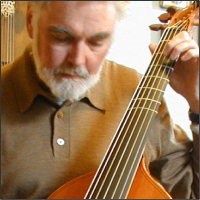Prof. Richard Viladesau
// author, scholar & ProfessorPROF. RICHARD VILADESAU is an author, scholar, and Professor of Theology at Fordham University in New York City. His book “Theological Aesthetics: God In Imagination, Beauty, And Art” (1999) is available from Oxford University Press, “Theology And The Arts: Encountering God Through Music, Art, And Rhetoric” (2000), and “The Word In And Out Of Season: Homilies For The Major Feasts, Christmas, Easter, Weddings, And Funerals” (2001) are both available from Paulist Press, “The Beauty Of The Cross: The Passion Of Christ In Theology And The Arts From The Catacombs To The Eve Of The Renaissance” (2005), “The Triumph Of The Cross: The Passion Of Christ In Theology And The Arts From The Renaissance To The Counter-Reformation” (2008) are both available from Oxford University Press. Fr. Richard Viladesau is also a Priest of the diocese of Rockville Centre.
Website: www.fordham.edu
Photo: Prof. Richard Viladesau / Fordham University
Interview:
Music is not automatically spiritual; it can appeal to our merely animal instincts and feelings; it can be banal and soporific; it can be frenzied and dehumanizing. But music can also help us to reach the depth and the heights of human experience, where it touches on the eternal and divine. Music has spiritual significance when it aids us to attain a deeper level of humanity, a level that transcends our spontaneous egotism and reaches out, at least implicitly, to an ultimate meaning. At its most profound level, music allows us not only to experience the joy of existence, even in its tragic and discordant moments, but also to anticipate, to feel, the ground of all beauty and desire, and the overcoming of all sorrow. The spiritual function of music is to raise the rhythms, consonances, and associations of our physical, animal nature to the level of spiritual values: contemplation; communion; active concern for others and for the world. It can be associated with these values by accompanying words. Sacred song and chant are a vehicle for an explicit message that appeals to the human heart and mind; a message about values and meaning in life. Music can also be spiritual outside the realm of the religious, and by its own proper means. Music itself, as Plato said, reaches into the depths of the heart. It can lead to contemplation, communion, and love, by convincing us of the final joy of existence, despite the contradictions of sorrow and pain, and by pointing to that joy’s source and goal. It can console us with order, harmony, and beauty that point to an ultimate meaning; or it can confront us with discord that prophetically stirs our souls toward the reversal of evil.
“[Music] can lead to contemplation, communion, and love, by convincing us of the final joy of existence.”
– Prof. Richard Viladesau, author of “Theology And The Arts: Encountering God Through Music, Art, And Rhetoric”


